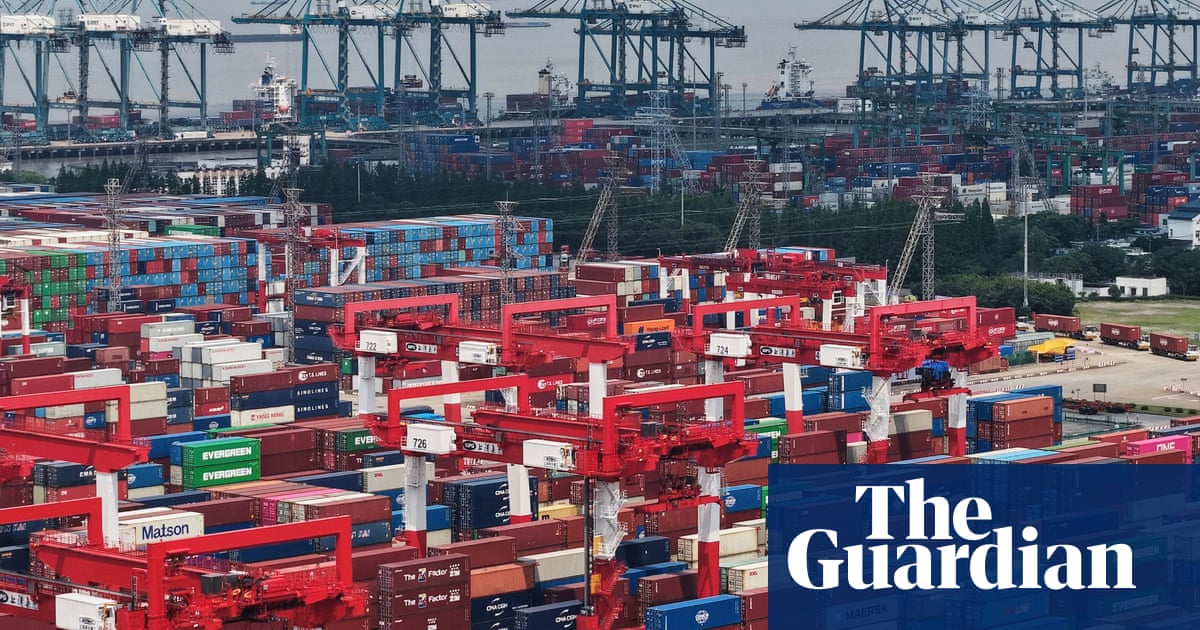Chinese exports to the UK jumped in May, according to data from Beijing, raising the prospect of a flood of cut-price goods as firms look for alternative markets to avoid Donald Trump’s tariffs.
Data published by the Chinese government showed a 16.1% increase in exports to the UK in May compared with the same month last year, hitting the highest level since February 2022.
That could be an early signal of an acceleration from the 10% annual rate of increase in April in the UK data published by the Office for National Statistics (ONS).
UK policymakers are watching closely for evidence that cheap Chinese imports that might once have been bound for the US are arriving in UK markets.
The Bank of England’s rate-setting monetary policy committee has suggested it could be a welcome factor bearing down on inflation in the coming months.
Sanjay Raja, a senior economist at Deutsche Bank, said: “Given lags in shipping, it’s possible that we may be seeing the start of a trend in higher imports from Asia … This could have important consequences for inflation.”
However, firms in some industries have expressed concerns about the prospect of Chinese products being “dumped” in the UK.
The business secretary, Jonathan Reynolds, has backed measures recommended by the UK’s Trade Remedies Authority, including keeping tight control over import quotas, to preventcheap Chinese steelflooding on to the UK market.
Gareth Stace, the director general of the industry body UK Steel, called it “a tremendous outcome” that would “prevent countries that flood international markets with unsustainably cheap steel from swamping the UK and driving our steel manufacturers out of business”.
The chancellor, Rachel Reeves, recently promised retailers she wouldreview the low tax regimethat allows parcels worth less than £135, often bought from websites such as Shein and Temu, to be imported free of customs duties.
Neil Shearing, a chief economist at the consultancy CapitalEconomics, said Chinese exports to the US dropped 34% year on year in May as tariffs on Beijing peaked, creating inevitable pressure to divert goods ultimately bound for the US via other countries, such as Vietman or Cambodia, or to find new markets elsewhere.
Sign up toBusiness Today
Get set for the working day – we'll point you to all the business news and analysis you need every morning
after newsletter promotion
“It’s the proverbial double-edged sword – and this is the essence of the challenges of globalisation,” he said. “On the one hand, you have disinflation coming through imported goods, so that’s good for consumers. On the other hand, there’s extreme price competition for your exporters and your domestic industries.”
The US andChinarecently agreed a temporary trade truce, but tariffs on most Chinese goods entering the US market remain at a prohibitive 30%.
Most countries are subject to a 10% tariff, with the much higher “reciprocal” levies announced on Trump’s “liberation day” paused for 90 days until 9 July while trade negotiations continue.
